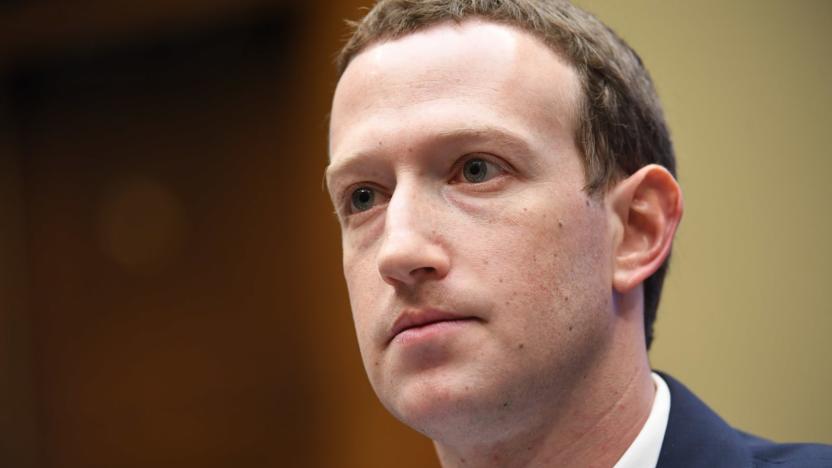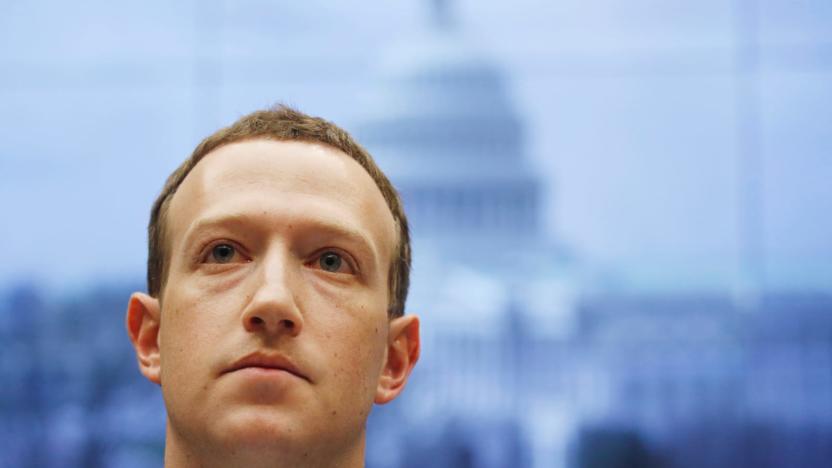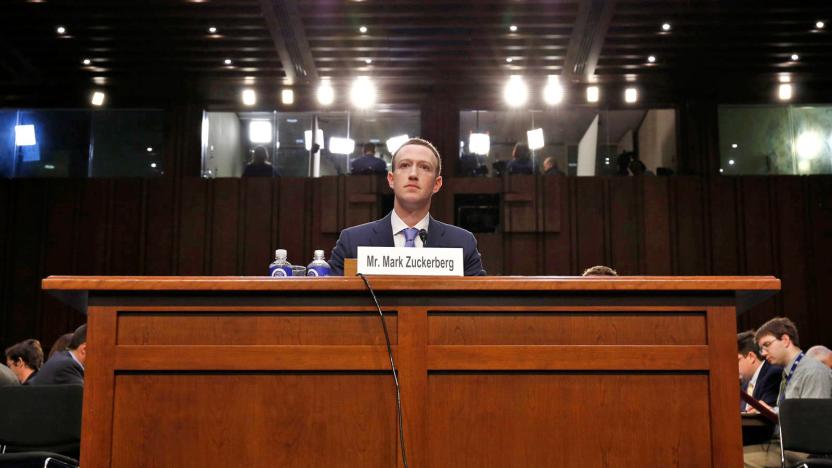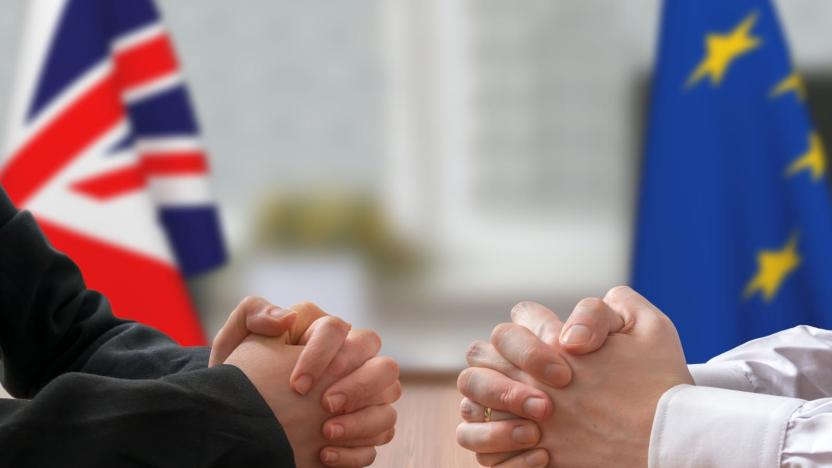datasharing
Latest

Facebook tries to explain Netflix and Spotify's messaging access
In response to the latest data sharing exposé from the New York Times, Facebook has sounded off about one particular aspect many people focused on: read/write access to private messages granted to partners like Netflix and Spotify. While those companies initially responded to say that they either did not use this access or were unaware of it, Facebook's blog post tries to untangle the question of why it was necessary at all. In order for you to write a message to a Facebook friend from within Spotify, for instance, we needed to give Spotify "write access". For you to be able to read messages back, we needed Spotify to have "read access." "Delete access" meant that if you deleted a message from within Spotify, it would also delete from Facebook. No third party was reading your private messages, or writing messages to your friends without your permission. The way Facebook lays it out (similar to a Twitter thread posted yesterday), this kind of integration was "experimental" and, contrary to the vague descriptions of the permissions in it, very specific in how it worked. The access Netflix and Spotify had was for messages that directly tied into how their apps worked, as VP of product partnerships Ime Archibong said: "These partnerships were agreed via extensive negotiations and documentation, detailing how the third party would use the API, and what data they could and couldn't access." Facebook describes in some detail why this access wasn't used to do things like send messages to your friends without your input, or allow for partners to read more of your private information and says they've been shut down for three years. However, the initial lack of clarity on what they meant, whether users understood what they agreed to, and how it was all audited is part of the reason why the company is running dry on trust and benefit of the doubt when it needs that the most.

Facebook didn't check how phone makers handled the user data it shared
The New York Times revealed earlier this year that Facebook gave phone makers access to detailed user data so people could access the social network's features without the need for an app. Facebook shared user information with those companies under a 2011 consent decree with the FTC, which obligates the social network to protect the privacy and confidentiality of the data it shared. According to a new report by the publication, though, 1 Hacker Way merely had a loose oversight of its partnerships and didn't monitor the companies as closely as it should have after giving them access to information.

Senators want to know how Facebook shares data with device makers
If you're concerned that Facebook may have shared more of your data with device makers than you were comfortable with, you're not alone. Senators Richard Blumenthal and Ed Markey have sent a letter to Mark Zuckerberg asking him to answer questions on Facebook's approach to sharing data with device partners like Apple, BlackBerry and Samsung. They want to know how it distinguishes between hardware companies and app developers, which companies have had access so far (including through exemptions), and what safeguards it has in place to both prevent abuse and give users a chance to opt out.

Report: Facebook gave Apple, Samsung broad access to user data
Facebook may have violated a 2011 FTC consent degree by giving Apple, Samsung, BlackBerry and other device makers detailed access to user data, according to the New York Times. The social network struck partnerships with at least 60 device makers so that they could offer messaging, "Like" buttons and other features without the need for an app. However, an NYT reporter found that the BlackBerry Hub, for one, was able to glean private data from 556 of his friends, including their religious and political leanings and events they planned to attend.

Senate plans hearing on Cambridge Analytica's misuse of Facebook data
It's not just Facebook's Mark Zuckerberg facing close scrutiny from Congress over the Cambridge Analytica data sharing scandal. Senator John Thune has stated that the Senate Commerce Committee plans to hold a hearing on Cambridge Analytica and "similar firms" that might have obtained Facebook data without permission. There are "plenty of questions" about what Cambridge Analytica did, Senator Thune said.

Facebook suspends data firm using Cambridge Analytica-like tricks
Facebook isn't just taking action against the companies directly involved in the Cambridge Analytica data sharing scandal. The company has suspended CubeYou after CNBC sent word that the analytics company was using Cambridge Analytica-style methods to harvest data for marketing purposes. It billed its quizzes as meant for "non-profit academic research" (it did build a website for Cambridge University between 2013 and 2015), but turned around and shared that info with advertisers. Whether or not CubeYou averts a ban will depend on whether or not it passes an audit, although that's far from certain.

OnePlus is collecting your private data without permission
OnePlus is mainly known as the little upstart that took on the big guns with the help of its solid, yet affordable, handsets. But, its in-house version of Android, dubbed OxygenOS, is once again threatening to dent its hard-fought for credibility. The problem lies with the company's approach to data-sharing, which is problematic (to say the least). As security researcher Chris Moore has repeatedly pointed out, the manufacturer's OxygenOS-based devices not only gather a ton of user data, but they also tie this info to individual devices, and user accounts in particular.

UK snooping laws could sever EU data ties come Brexit
As it stands, the sharing of data between businesses, law enforcement agencies and such across EU countries is relatively straightforward. That's because of various laws and agreements in place across the EU that set standards for data movement, protection and privacy. In other words, countries are all on the same page and know what is expected of them. But in the future, the UK won't be part of the EU anymore, which is why the government has now published a set of proposals laying out how Britain hopes to keep data flowing between it and the continent post-Brexit.

Facebook fined €110 million for misleading EU over WhatsApp takeover
After months of deliberation, the European Commission has ruled that Facebook intentionally mislead officials over its ability to utilize data following its acquisition of WhatsApp in 2014. As a result, the social network has been fined €110 million ($122 million or £94 million) and becomes the first company to be penalized under the Commission's Merger Regulation law since it was introduced in 2004.

US and Europe struggle to agree on data sharing
How tech companies share your data overseas is a thorny issue, and it doesn't appear to be getting any easier. The US and European Union failed to reach a deal over data sharing before an end-of-January deadline, leaving important questions of privacy and legal responsibility up in the air. According to the New York Times, the two sides aren't even close. The EU wants promises that data is protected against bulk US spying, for instance, but it's not thrilled by a proposed US State Department "data ombudsman" who'd help Europeans concerned about American misuse of their info.

Boston partners with Waze to clear up clogged streets
Whether or not Boston's twisted streets really are the product of meandering cows, the city famously struggles with traffic these days. To help things out, the city announced a data sharing plan with Waze, where it will share information on expected road closures (like say, a championship parade) with the traffic app. On its end, Waze will pump data on its 400,000 or so drivers in the area back to the city's Traffic Management center, which engineers there can use to adjust signals at intersections to improve traffic flow. Waze announced Boston as one of ten cities participating in its Connected Citizens program last year, and helping untangle traffic jams could go a long way towards helping the Google-owned service be more appreciated by local officials. [Image credit: The Washington Post/Getty Images]

Foursquare agrees to share check-in data with Gnip, promises it's anonymous
Foursquare is putting your check-in data to use through its new partnership with Gnip, a service that aggregates social media APIs. Gnip has similar deals with companies like Tumblr and Disqus, and it plans to provide Foursquare-sourced information to market and academic researchers. Blake Shaw, Foursquare's resident data scientist told Gnip, "I think this data can act almost like a microscope for cities." It's worth noting that this isn't the first time Foursquare's set out to share check-in data. A few months ago, the company took some flack for its data-sharing initiative allowing businesses to track their customers' activity -- despite the inclusion of an opt-out feature. This time, they're eager to clarify that the data accessible through Gnip is fully anonymized. Researchers will be able to see where and when check-ins were made, but the only user data attached will be a gender. So, Gnip will know that a female Foursquare user stopped by a specific Starbucks at 11:30AM, but that's all. Your data will remain as anonymous as it can be on a site devoted to broadcasting your every move.

j5 Create's device / data sharing peripherals leave us cautiously optimistic
We're dying to find out more about j5 Create's line of attractive and ambitious peripherals, but we're not entirely sure they actually exist. The company's website features six different data and device sharing products -- the JUC100 Wormhole KM Switch offers keyboard and mouse functionality across two devices; the JUA230 DVI Display Adapter connects up to six monitors with three different display modes; and the JUH320 Wormhole Station brings together shared keyboard and mouse access with two USB 3.0 ports and a memory card reader. j5's website promises stylish connectivity, featuring sleek product renderings and a flash presentation that provides, ahem, inspirational insight -- swans, flutes, ballerinas -- but no talk of finished products, price, or availability. Additionally, we haven't found any of these devices for sale online, despite the fact that the brand's parent company, KaiJet, is an established manufacturer of peripherals in Taiwan. So, yes, there's a chance that someone out there is hooked up to a Wormhole Station right now, but we wouldn't bet our diamond-encrusted iPhone on it.

Verizon iPhone 4 will have 3G mobile hotspot (update)
It'll probably be subject to an additional fee as usual, but Verizon and Apple have just revealed that the new CDMA iPhone 4 will act as a mobile WiFi connection for up to five devices. It'll come with an iOS-specific version of the Verizon 3G Mobile Hotspot that folks have been enjoying on their Droids for many moons now. That should allowing for laptops, tablets and the like to get online via iPhone without a pesky cord, and almost certainly make the long-verboten iPhone - iPad tethering connection finally attainable. Joy to the world! Update: Verizon called it an app, but getting hands-on we can see that's not the case at all -- Personal Hotspot is built right into the CDMA iPhone 4's build of iOS 4.2.5. Perhaps we'll see it migrate to other devices as well?

How-to: push Chrome / Firefox links to your Android 2.2 Froyo device (video)
While we absolutely adore our Nexus One -- now that it's got a bellyful of that fabulous frozen yogurt -- one of the most exciting Android additions shown off at Google I/O isn't actually slated for Froyo: the ability to push apps and music over the air from computer to phone. The underlying framework apparently is, though, and thus a bite-sized version of the functionality is already available at Google Code. If you're one of the lucky few running Android 2.2, you can get an extension for Chrome and Firefox web browsers that will let you push URLs, Maps and YouTube video links direct to your device using a Google Account. You can think of it as an early foray into a Continuous Client, perhaps, sharing with yourself before you head to a business meeting. Better yet, share an account with a group of friends and push interesting items to everyone on the go. See how (and see it in action) right after the break.








